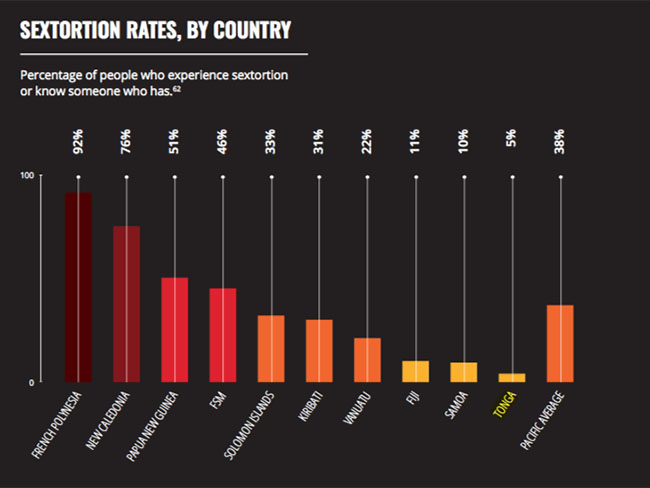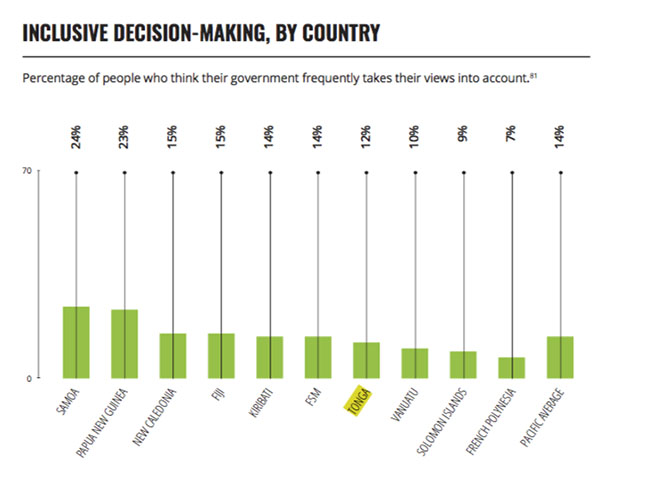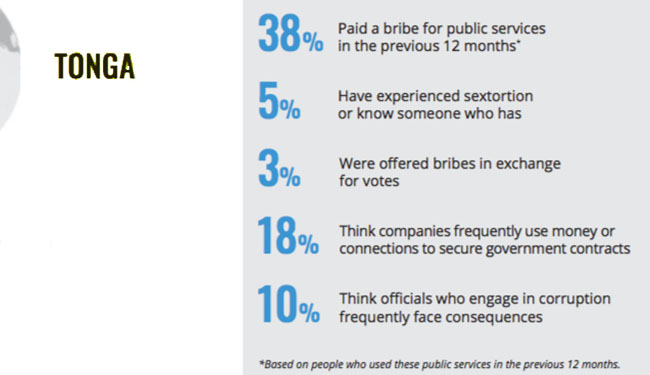
By Pesi Fonua
Corruption is a problem across both the public and private sectors in 10 Pacific Island countries, according to Transparency International’s Global Corruption Barometer – Pacific 2021, released in November.
Tonga was among 10 Pacific countries, where 6000 people participated in the survey between February and March 2021, to measure the public perception of corruption.
Two thirds of respondents (66 per cent) in Tonga think that levels of corruption in their government had increased. While 55 per cent of respondents in Tonga think that corruption in the business sector increased over the 12 months prior to the survey.
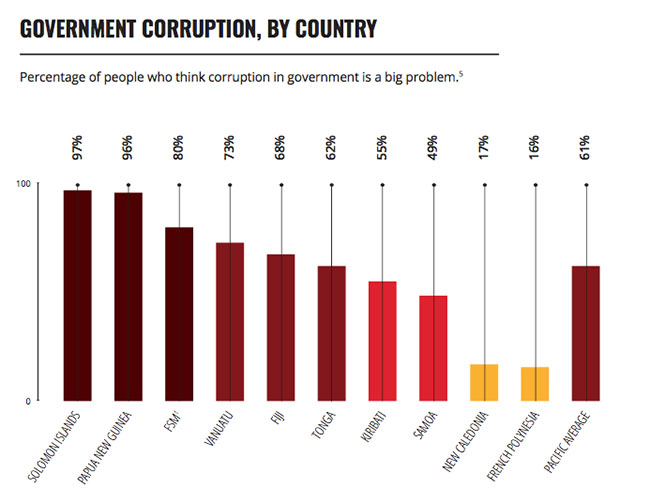
According to Transparency International, Pacific countries and territories have remained among the most under-studied in the world. In many of these countries and territories, the survey constitutes the very first attempt to gather this type of data.
Others included in the survey were the Federated States of Micronesia, Fiji, French Polynesia, Kiribati, New Caledonia, Papua New Guinea, Samoa, Solomon Islands and Vanuatu. Country surveys were compared in the report titled “Citizens’ Views and Experiences of Corruption”.
Public see corruption worsening
The result is the most extensive public opinion data on corruption ever gathered in the region.
“Respondents in many countries across the region see corruption as a major problem, but they also see it as one that has worsened. A majority of respondents (56 per cent) think that levels of corruption increased in their country’s government over the 12 months prior to the survey. Less than a fifth (17 per cent) think corruption decreased.
“Unfortunately, there is no country in which a majority of people surveyed felt corruption in government had declined,” the report said.
“In terms of corruption trends in business, 45 per cent of respondents in the region think that corruption in the business sector increased over the 12 months prior to the survey. This view is shared by most people we talked to in Solomon Islands (63 per cent), the Federated States of Micronesia (59 per cent) and Tonga (55 per cent).”
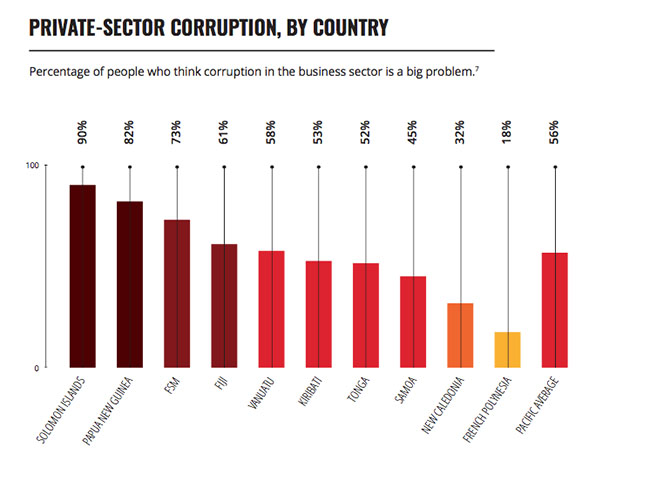
Around a third of interviewees across the region think that most or all members of parliament and staff in heads of government’s offices are involved in corruption.
Impunity also appears to be a problem, with less than a fifth of respondents, 18 per cent, believing that corrupt officials frequently face appropriate consequences for their actions.
One of the most significant results was how often ordinary people in the Pacific directly encounter corruption in their daily lives. Thirty-two per cent of interviewees recently paid a bribe to receive public services – a higher rate than any other region surveyed by Transparency International.
Corruption in elections.
Across the region, around a quarter of respondents have been offered a bribe for their votes. This has serious consequences for the integrity of national and local elections. However, in Tonga 3 per cent of respondents said they were offered bribes in exchange for votes.
Corruption is a big problem in business.
A corruption hotspot appears to be government contracts, which over two thirds of respondents believe businesses secure through bribes and connections. Almost half of the people we surveyed think there is little control over companies who extract natural resources, which is of particular concern given that this is one of the largest industries in the region.
Change is possible
The good news is that over 70% of respondents across the region say that ordinary people can help to fight corruption. More than 60% also think their government is doing a good job at combatting corruption.
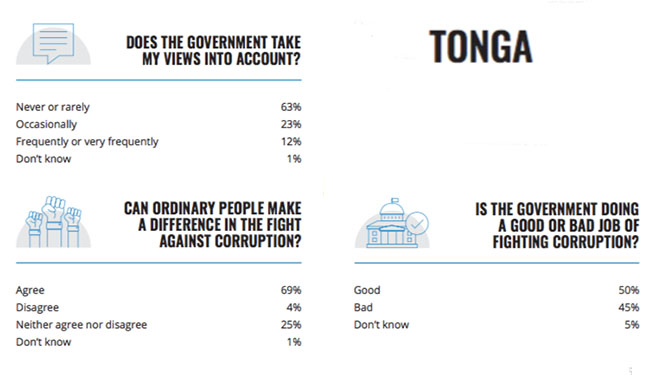
This new data reveals for the first time the high levels of corruption directly experienced by people in the Pacific, which points to a pressing need for reform.
Eight of the ten countries and territories* surveyed in this Global Corruption Barometer – Pacific are sovereign nations and young democracies, having achieved independence between the 1960s and the early 1980s. As a result, governance structures and political institutions are still relatively new and overlaid on traditional systems. Several countries also experience ongoing instability. These factors create a range of corruption risks, said Transparency International.
Following decisive measures to contain the COVID-19 pandemic in 2020, the first significant outbreaks only reached the region during 2021. However, critics are already warning that the crisis has been used by some governments to limit freedoms.
Transparency International is a global movement with the vision: a world in which government, business, civil society and the daily lives of people are free of corruption.
